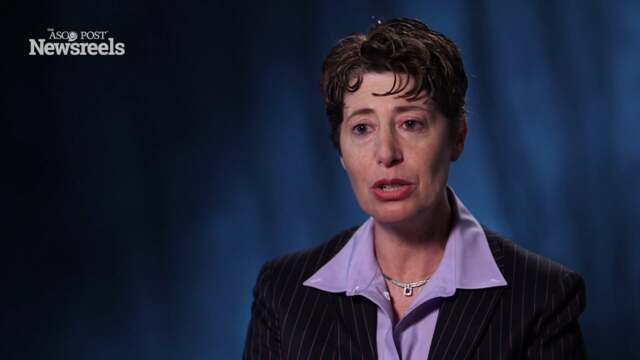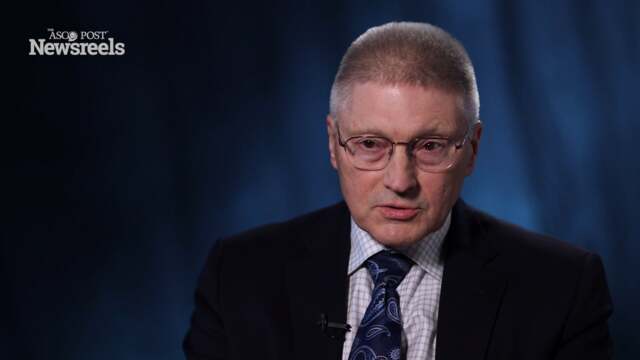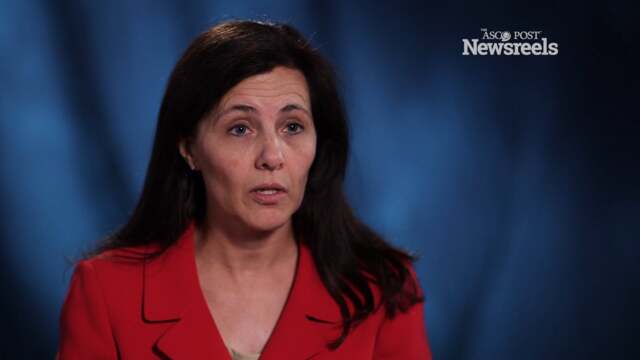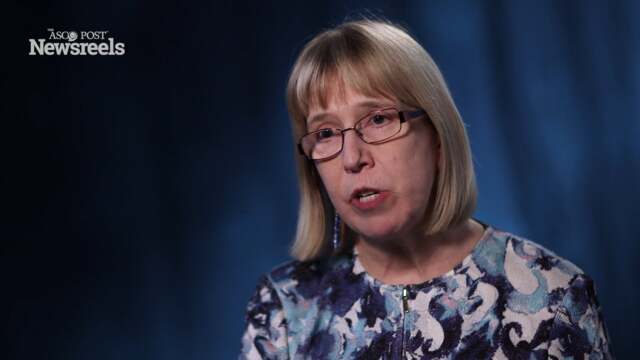Alice T. Shaw, MD, PhD, on ALK, Crizotinib, and Alectinib
2015 IASLC World Conference on Lung Cancer
Alice T. Shaw, MD, PhD, of Massachusetts General Hospital, summarizes efficacy and safety data from studies on crizotinib, brigatinib, and alectinib for ALK-positive non–small cell lung cancer (ORAL 33.03, 33.06, 33.07).
James R. Jett, MD
James R. Jett, MD, of National Jewish Health, discusses his study of the early CDT-Lung biomarker. His hypothesis: When used in combination with low-dose CT in screening of a high-risk population, this biomarker would increase the detection of early-stage lung cancer (Abstract MINI 12.11).
Barbara J. Gitlitz, MD
Barbara J. Gitlitz, MD, of USC/Norris Cancer Center, discusses the first prospective study on the genomic drivers and demographics of lung cancer in patients under 40 who took part in the study remotely via the Internet (Abstract ORAL22.05).
Philip Bonomi, MD
Philip Bonomi, MD, of Rush Medical College, summarizes a debate on two important issues: choosing between surgery and stereotactic body radiation therapy (SBRT) in operable NSCLC, and whether or not to use SBRT for nonbiopsied lung nodules (Abstract PC 01).
Heather A. Wakelee, MD
Heather A. Wakelee, MD, of Stanford University discusses the study that explored the question of whether adding bevacizumab to adjuvant chemotherapy is beneficial in the setting of resected non–small cell lung cancer (Abstract PLEN04.03).
Christine D. Berg, MD
Christine D. Berg, MD, of Johns Hopkins Medicine, discusses how increased insurance coverage should dramatically increase lung cancer screening. If done correctly—which will be a challenge—screening will help improve the prognosis of patients with lung cancer (Abstract PLEN 01.01).





